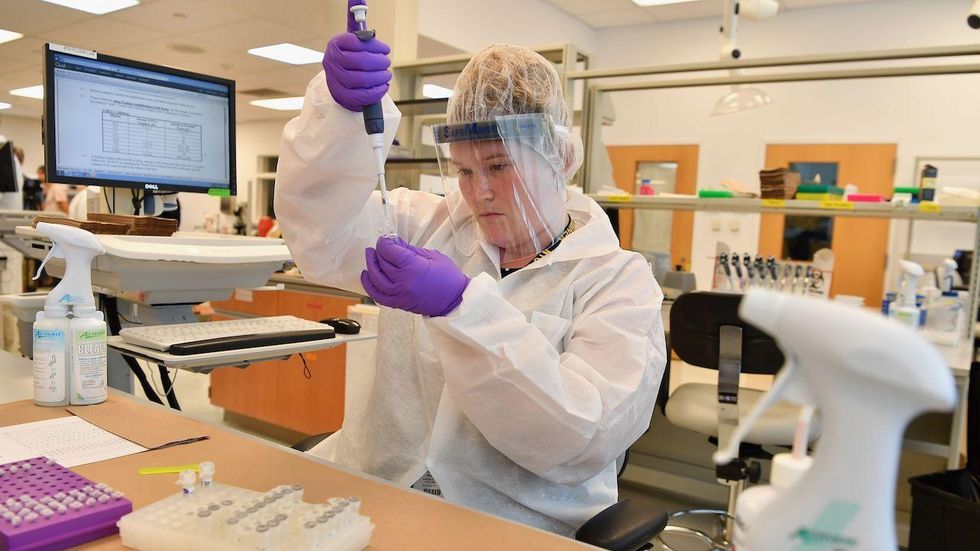
The Food and Drug Administration has cleared the way for a direct to consumer test that will allow patients to find out how their bodies respond to certain medications. (Angela Weiss/AFP/Getty Images)

The Food and Drug Administration has cleared the way for the first direct-to-consumer DNA test that may help patients learn how certain medications work in their bodies.
On Wednesday, the FDA announced that it authorized 23andMe Personal Genome Service Pharmacogenetic Reports to market to consumers a DNA test that will analyze numerous genetic variants associated with a person's ability to metabolize certain medications.
Tim Stenzel pointed out that the test is to be used as a tool for patients and their physicians. Stenzel is the director of the Office of In Vitro Diagnostics and Radiological Health in the FDA’s Center for Devices and Radiological Health.
“This test should be used appropriately because it does not determine whether a medication is appropriate for a patient, does not provide medical advice and does not diagnose any health conditions," Stenzel said in a news release.
The report provided to individuals is not meant to diagnose any condition or replace the advice of a health care provider.
"Consumers should not use this test to make treatment decisions on their own. Any medical decisions should be made only after discussing the results with a licensed health care provider and results have been confirmed using clinical pharmacogenetic testing," Stenzel added.
Scientists have long established that genetics plays a role in how patients respond to medications.
Using that science, 23andMe will test 33 genetic variants that are associated with the way an individual responds to "more than 50 other commonly prescribed and over-the-counter medications. For example, clopidogrel, which is commonly prescribed to prevent heart attacks and strokes," 23andMe said in a news release.
"The [FDA] authorization allows 23andMe to provide customers with information on whether they are predicted to be fast or slow metabolizers based on their genetics, and when supported by appropriate clinical evidence, whether they may experience reduced efficacy or have an increased chance of side effects from certain medications."
The company provided data to the FDA that demonstrated the accuracy of the pharmacogenetic test results.
It also submitted user comprehension studies to show that the consumers' reports provide information that describes the meaning of the results, as well as what the test does not do and how to interpret results.
"In order to demonstrate this, 23andMe showed its tests have greater than 99 percent accuracy. Further, 23andMe had to demonstrate at least 90 percent user comprehension of the key concepts communicated in the reports," 23andMe said in the release.
23andMe said it has not determined when the test will be available.